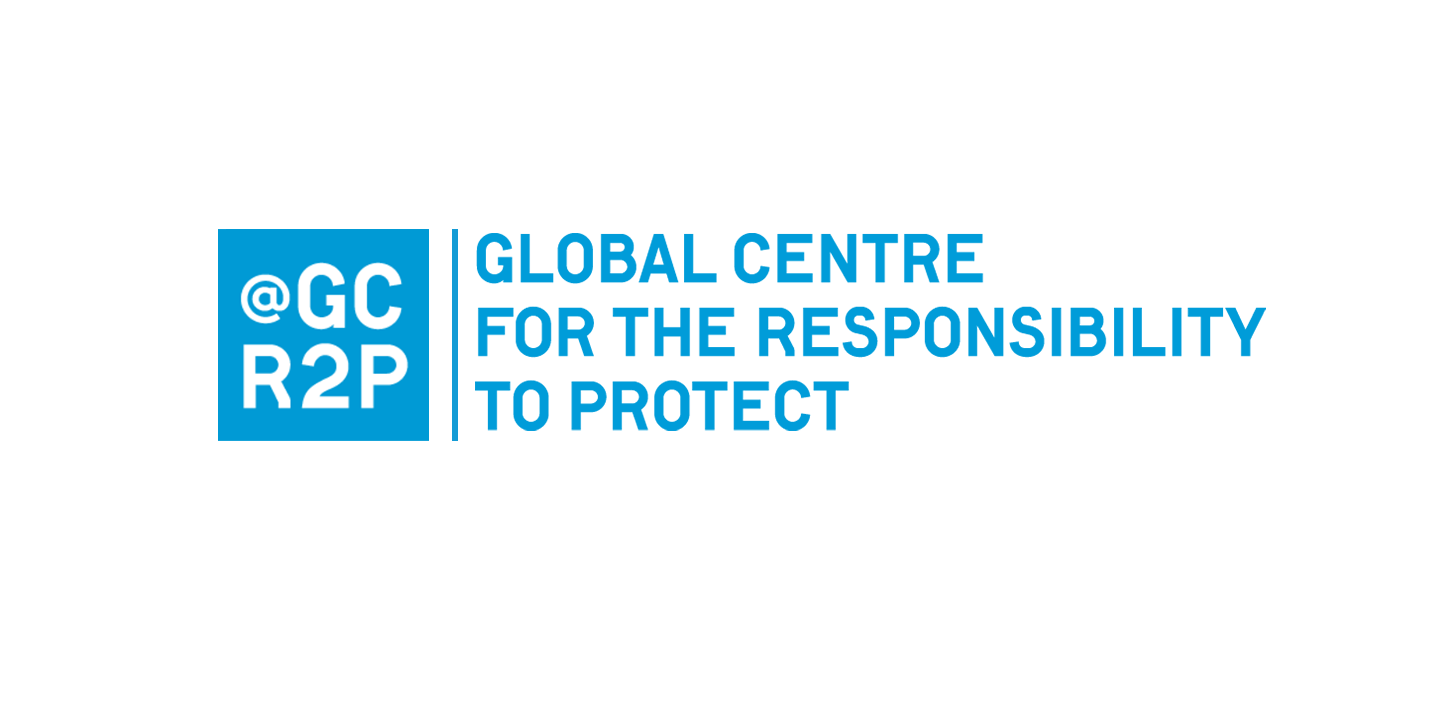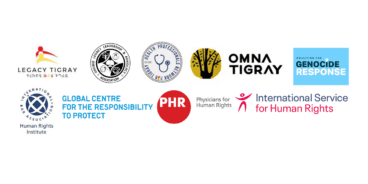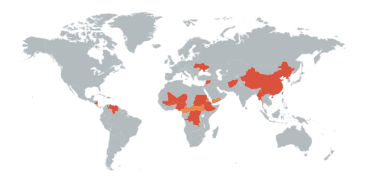

Global Centre for the Responsibility to Protect Submission to the International Commission of Human Rights Experts on Ethiopia
Background
Since the beginning of the conflict in Ethiopia’s northern Tigray region between Ethiopian federal government forces and their allies and forces loyal to the Tigrayan People’s Liberation Front (TPLF) in November 2020, widespread violations of International Humanitarian Law (IHL) and International Human Rights Law (IHRL) have been committed, including indiscriminate bombings and attacks on civilians, ethnic-based killings, sexual violence, forced displacement, use of child soldiers and the systematic destruction of food, water and healthcare systems. Numerous cultural heritage sites, as well as camps in Tigray hosting Eritrean refugees, have been destroyed and looted. Similar violations have been perpetrated in neighboring Amhara and Afar regions since the conflict spread in July 2021. The conflict has also caused a man-made humanitarian catastrophe to unfold across northern Ethiopia, with at least 9.4 million people in urgent need of aid.
Reporting by the Office of the UN High Commissioner for Human Rights (OHCHR), the Ethiopian Human Rights Commission (both independently and as part of a joint investigation) and various international human rights organizations have found that all parties to the conflict – including the Ethiopian National Defense Forces (ENDF) and allied Eritrean forces and militias, the Tigray Defense Forces and allied militias, Amhara regional forces and affiliated militias – have committed probable mass atrocity crimes, including war crimes, crimes against humanity and ethnic cleansing.
According to an April 2022 report by Amnesty International and Human Rights Watch, Amhara regional forces and militias – with the acquiescence and possible participation of Ethiopian federal authorities – perpetrated war crimes, crimes against humanity and ethnic cleansing in Western Tigray. While tens of thousands of Tigrayans fled abuses in Western Tigray, Amhara authorities reportedly attempted to coerce those that remained to leave by subjecting them to ethnically targeted restrictions. Amhara authorities also organized transportation that took Tigrayans out of Amhara-controlled areas in Western Tigray, confiscated their documents and warned them not to return while simultaneously calling for the settlement of Amhara residents into the area. Amhara forces, with assistance from Eritrean forces and federal government allies, continue to hold the territory of Western Tigray.
The conflict in the northern regions has exacerbated tensions across the country, with the UN Special Adviser on the Prevention of Genocide decrying – in February, July and November 2021 – the alarming rise in inflammatory rhetoric, hate speech and ethnic targeting. The propagation of ethnic-based hate speech and profiling, particularly against Tigrayans, has left them vulnerable to abuse, including outside of the conflict zone. According to OHCHR, from 9-16 November 2021 more than 1,000 Tigrayans were arrested, including dozens of UN staff and subcontractors delivering aid. Thousands of Tigrayans also remain in overcrowded detention facilities in Western Tigray.
Inter-communal and inter-religious violence, as well as regional border disputes, have become increasingly frequent. In Oromia, regional security forces and the Oromo Liberation Army (OLA) armed group – a party to the conflict in Tigray – have allegedly committed enforced disappearances and attacks on civilians, including ethnic Amharas. Last month suspected OLA militants summarily executed at least 400 Amhara civilians, including women and children, in Tole Kebele, Oromia region on 18 June. There is growing evidence that both the ENDF and the OLA are committing likely crimes against humanity against populations in Oromia as they struggle for control and influence.
Historically Ethiopia’s ethnic-based federalist system has resulted in widespread allegations of ethnic favoritism. Under the former TPLF-dominated ruling coalition, which controlled the government for 27 years prior to Prime Minister Abiy Ahmed coming to power in 2018, many groups felt marginalized. A history of impunity for past human rights abuses by security forces has also deepened distrust between ethnic groups. This history, coupled with increasing political and social polarization, could lead to further ethnically motivated violence across Ethiopia. The Global Centre therefore concludes that the Ethiopian government has failed to uphold its primary responsibility to protect all populations in Ethiopia, regardless of ethnicity.
Recommendations on transitional justice, accountability, reconciliation and healing
Justice, accountability and reconciliation for human rights violations and abuses, as well as likely mass atrocity crimes committed since November 2020, are essential for establishing the foundation for long-lasting peace and societal healing, and contribute to the non-recurrence of atrocity crimes in Ethiopia. Any justice and reconciliation mechanism must have the buy-in and full participation of victimized communities to ensure the full restorative impact of these processes. In this context, the Global Centre would like to provide the following recommendations:
Methodology and reporting:
-
-
- The Responsibility to Protect. We respectfully request the Commission to highlight the violations and abuses of IHL and IHRL that have taken place in Ethiopia as a failure of the Ethiopian government to uphold its primary responsibility to protect populations from mass atrocity crimes, namely genocide, war crimes, crimes against humanity and ethnic cleansing as defined in the 2005 World Summit Outcome Document.
- The UN Framework of Analysis on Atrocity Crimes. We encourage the Commission to utilize the UN Framework of Analysis on Atrocity Crimes as a tool to frame its recommendations to the international community, UN Human Rights Council and the Ethiopian government. The Framework can assist the Commission in developing a forward-looking risk assessment through identifying the indicators of atrocities that are present in Ethiopia today. The Global Centre believes that many of the risk factors included in the Framework of Analysis are found in Ethiopia.
-
Justice and accountability
The Commission should welcome and attempt to engage with any national, regional or international inquiry as investigations into this conflict should be mutually reinforcing. It is of the utmost importance that all victimized communities have access to the justice process and that their voices, wants and needs are at the center of these efforts. Given the long-standing grievances and history of inter-communal conflict between ethnic groups, it is imperative that investigations to be impartial, independent, thorough, transparent and effective – judged not only by international standards, but also by meeting the criteria set out by survivors and victims.
Accountability efforts must be independently verified and vetted as transparent and fair. The Commission should request access to all information used for the prosecution of perpetrators of international crimes at the national level. This is imperative to verify due process for individuals who have been prosecuted at the national level, especially those who have been tried in military courts. Moreover, the names of those tried and convicted should be communicated to the families of victims and survivors.
If the proper internationally established standards cannot be met by the Ethiopian legal system alone, the international community should assist in order to deliver justice and accountability for victims and survivors. The Commission should call for the establishment of a two-pronged approach, including a national truth and reconciliation commission that provides a safe forum to air grievances on a granular level, as well as for a regionally established international tribunal for the prosecution of atrocity crimes.

